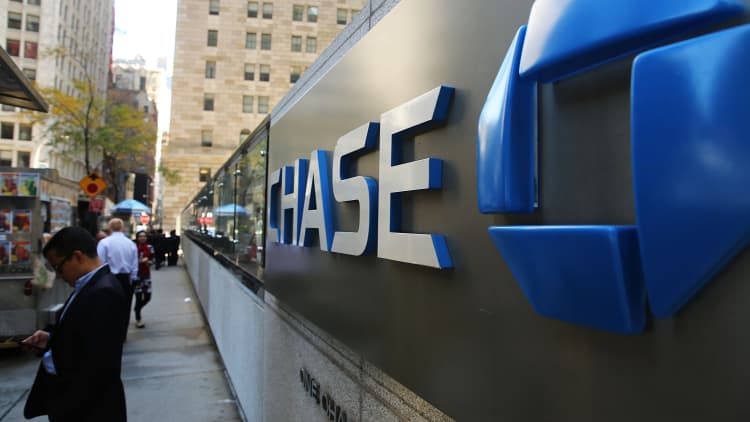
JPMorgan Chase may be the second-largest mortgage lender in the nation, but when it comes to government-backed, low down-payment Federal Housing Administration loans, it's not even in the top 100. Onerous regulations and the constant threat of litigation have all but stalled originations of these loans, which were originally designed to help first-time homebuyers with lower credit scores and less cash.
"FHA requirements are down to a 520 FICO (credit score) and you only have to put 3.5 percent down; that's subprime lending, and we're not in the subprime lending business," said Kevin Watters, CEO of Chase Mortgage Banking.
Chase Mortgage has not stopped doing FHA loans entirely, but its FICO requirements are far higher, and its loans are more expensive to price in the added risk.
"It's not just the CFPB or Fannie and Freddie's rules or Treasury's rule's or Ginnie Mae, who's the servicer for FHA—you've got 584 different state and local rules too. So you're trying to make sure you abide by all these different rules, and it just gets very complicated, very expensive, so for us in FHA, we've priced FHA for the risk we see in FHA, and so we've got a higher price than other people so customers are going to other places," said Watters.
Independent lenders have picked up the FHA slack from big banks but that comes with added risk for which Ginnie Mae is ill-equipped, according to Ginnie Mae's own president, Ted Tozer.
"Today almost two-thirds of Ginnie Mae guaranteed securities are issued by independent mortgage banks. And independent mortgage bankers are using some of the most sophisticated financial engineering that this industry has ever seen," said Tozer in a speech Monday in Arlington, Virginia. "We are also seeing greater dependence on credit lines, securitization involving multiple players, and more frequent trading of servicing rights—all these things have created a new and challenging environment for Ginnie Mae.
Frankly, as we look forward to the future, I do not believe that we have a large enough engine to deal with the steep hill in front of us. In other words, the risk is a lot higher and business models of our issuers are a lot more complex. Add in sharply higher annual volumes, and these risks are amplified many times over."
Ginnie Mae has asked for a $5 million increase in its budget, but so far Congress has denied it. Combined with the fact that some of these independent lenders are very small, that only increases risk.
"So you've got folks that aren't as highly regulated, that aren't as well capitalized, and I'm sure many of them do a great job, but there's a lot of new ones out there, and I think it would be prudent to go check on them," added Watters.
Chase isn't the only bank backing away from FHA. The largest mortgage lender in the nation, Wells Fargo, also raised minimum FICO scores for its FHA borrowers. Realtors say the big bank move away from this low down-payment option is hurting the housing recovery, specifically
"I believe that it will have a measurable impact in holding back some of the first time buyers," said Lawrence Yun, chief economist of the National Association of Realtors. "Therefore I think from a government policy point of view, they need to look at, very broadly, any mistake the lender has done or broken the law and go after it, but any uncertain lawsuit that comes out of right and left [field], that's going to hold back the market recovery."
Home sales dropped off in August, down far more than was expected. First-time homebuyers are still at less than one third of the market. Historically, they normally account for more than 40 percent of homebuyers.



